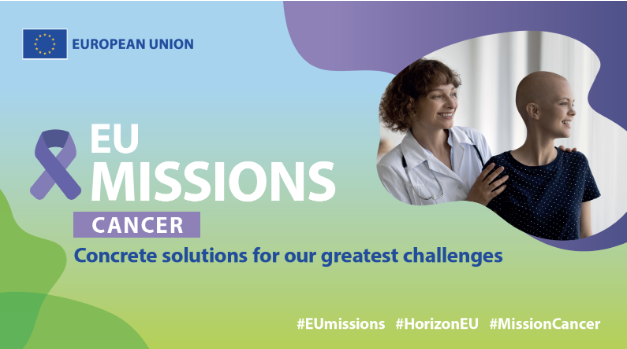
To promote awareness, and foster collaboration to advance cancer prevention strategies at a broader scale, 4P-CAN is thrilled to announce its initial engagement with several EU Mission Cancer Projects within the Cancer Mission Cluster on Prevention and Early Detection. This collaborative initiative represents a significant step forward in our shared mission to reduce the burden of cancer through innovative primary prevention approaches.
This collaboration enhances cooperation among projects and stakeholders, creating a collective impact in the field of cancer prevention. By leveraging the strengths and expertise of multiple initiatives, we can maximize the effectiveness of our efforts and contribute to the broader goal of reducing the burden of cancer.
Dr Marius Geantă, the Coordinator of 4P-CAN, presented the 4P-CAN Concept during the Kick-off meetings of the following projects:
ONCODIR Project – Evidence-based Participatory Decision Making for Cancer Prevention through Implementation: Colorectal cancer (CRC) ranks among the most prevalent cancer varieties, with its rising incidence possibly linked to poor health practices, particularly in communities with lower socioeconomic status. Drawing from the distinct risk elements associated with CRC, ONCODIR combines expertise from health policy analysis, social and behavioural science, AI-driven multi-omics and historical data evaluation, along with decision support concepts. This ensures the provision of scientifically-backed cancer prevention initiatives and cutting-edge AI-enabled personalized prevention strategies.
PIECES Project – Towards Large-scale Adaptation and Tailored Implementation of Evidence-based Primary Cancer Prevention Programmes in Europe and Beyond: The increasing global cancer toll highlights the necessity for effective primary cancer prevention (PCP) programs targeting changeable risk factors. Yet, even evidence-backed programs can falter in real-world settings due to poor adaptation to local challenges, resulting in health disparities. The PIECES project aims to create and spread the PCP Implementation Toolkit (PCP-IT), a specialized framework for cancer prevention. This toolkit will guide users in choosing and customizing PCP programs, and in devising strategies that consider local barriers. It will also house a vast collection of PCP programs, their underlying principles, and resources for local and cultural adjustments.
CPW Project – Cancer Prevention at Work: The Cancer Prevention at Work (CPW) initiative investigates the cost-efficiency and societal approval of including prevention measures for cancers linked to Helicobacter pylori, Hepatitis C virus, and Human Papillomavirus in existing primary occupational health monitoring programs. This integration aims to enhance the protective measures of workplace health oversight in select European areas.
PREVENT Project – Improving and Upscaling Primary Prevention of Cancer by Addressing Childhood Obesity through Implementation Research: PREVENT aims to enhance the scalability of weight management interventions during childhood and adolescence to lower cancer risks in adulthood, drawing from the known association between obesity and cancer. To achieve this, PREVENT identifies obstacles that prevent current interventions from being broadly adopted across diverse regions and cultural settings. The project introduces tailored interventions targeting a range of users such as students, families, and educators and designed for specific environments like classrooms or sports fields. Collaboration with medical professionals, policymakers, and communities is pivotal. The initiative employs tools like health apps and motivational interviewing to foster user acceptance and policy alignment.
Another Project part of the Cluster is the CO-CAPTAIN – Cancer Prevention among individuals with mental ill-health: co-adapting and implementing patient navigation for primary cancer prevention: It offers a person-focused approach to tackle cancer care inequalities and enhance access to primary prevention, addressing prominent risk factors like smoking and obesity in those with mental health challenges. This joint effort highlights our steadfast commitment to promoting primary cancer prevention and represents a major step in our collective mission to lessen the impact of cancer.

